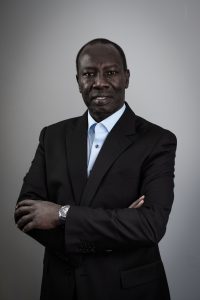 My name is Nagmeldin Karamalla-Gaiballa. I’m a Polish Sudanese origion political scientist, economist, poet, writer and Social cultural activist. I have more than 20 years’ experience in the social and economic research, especially in the context of Sub-Saharan Africa, Middle East and Gulf States. combining field and academic qualifications (MENA, Africa, Europe) with a wide range of international and regional Organizations as well as CSOs and NGOs .
My name is Nagmeldin Karamalla-Gaiballa. I’m a Polish Sudanese origion political scientist, economist, poet, writer and Social cultural activist. I have more than 20 years’ experience in the social and economic research, especially in the context of Sub-Saharan Africa, Middle East and Gulf States. combining field and academic qualifications (MENA, Africa, Europe) with a wide range of international and regional Organizations as well as CSOs and NGOs .
Educations
I obtained my Ph.D. in Political Science, with focus on conflict studies, from the Institute of Political Science and European Studies, Faculty of Humanities, University of Szczecin, Poland. My dissertation addresses, “The conflict in the Western Sudanese Region of Darfur and its Determinants,”.
I received a master’s degree in economics, with a specialization in finance and banking. In M.A. thesis, I discuss international bank settlement. In addition, I hold two certificates from United Nations’ Institute for Training and Research in Geneva, in capital market development and regulation and international players in public finance and debt management. These certificates enhance my global competence in finances. Also I have a certificate from Harvard University in USA, in Religion, Conflict and Peace.
Academic carrier
In my Academic carrier, I expended my knowledge and contributed to the global discourse on migration, climate change, and political economy of civil wars. Currently, I hold a visiting Post-Doctoral at the Institute of Ethnology and Cultural Anthropology, University of Warsaw, where I give lectures about Political economy of civil wars in Sudan, South Sudan, and in particular the conflict in Darfur and migration in Sudan and South Sudan, and as a visiting Assistant Professor in Faculty of Theology at Cardinal Wyszyński University in Warsaw, Poland, where I give a number of lectures about Sudan and ethnic conflicts, Islamization of northern, central, and eastern Africa.
I shared my insights on the field of political science and regional conflicts in Sudan in a published books and articles. I’m author of a book in polish titled “Sudan: Conflict in Darfur (2003-2011)”, published in 2017 by Warsaw University. In this book, I present the conflict in Darfur in the context of scarcity of natural resources such as water and vegetation, and above all to highlight its main cause, which is the region’s economic backwardness.
Diplomatic experience
I have proven experience in the functionality of diplomatic missions and international organizations, intergovernmental bodies or high-level government officials, as well as in developing, analyzing and reviewing reports for senior government officials. As well as in the interpretation and direct translation of senior government officials, princes, sheikhs, heads of government, ministers, heads of parliaments, and others. The fluency of three languages from different language groups, Arabic, English, and Polish, permits me to collaborate cross-culturally.
Civil liberties and human rights
As a defender of civil liberties and human rights in my home land Sudan, I have been part of movements for the restoration of democracy in Sudan for last three decades. I played leading role in the Sudanese Diaspora movement against Gen. Omar al-Bashir’s usurpation of power in 1989. We were among those Sudanese Diaspora activists, who resisted the illegal military rule right from the day General al-Bashir took over in 1989, and continued the struggle throughout his thirty years.
Serving as Chairman of Southern Connect Foundation and a member of the Advocacy Committee of the African Community in Poland I advise Polish-African. I also actively participate in social, cultural, and sports events; hold meetings with children and school youth, and engage in press, radio, and television interviews on Radio Tok FM, Polish Radio Program III, TVN (Polish TV channel), Polsat TV, and the Newsweek Poland, as well as the Rzeczpospolita and Gazeta Wyborcza newspapers.
Professional organizations
I expand the cross-cultural collaboration through my membership in professional organizations. I’m a member of Polish Association Political Science and Polish Africanist Society. As a member of the advisory board for British Journal of Human Resource and Leadership, I prepare reports to journal’s Publications Committee and owner’s Board of Directors and makes recommendations pertaining to improved dissemination of scientific material. Also as Chairman of the Foundation Council , I ensures that the board is effective in its task of setting and implementing its direction and strategy, and acts as the foundation’s leading representative, which involves the presentation of the foundation’s aims and policies to the outside world.
